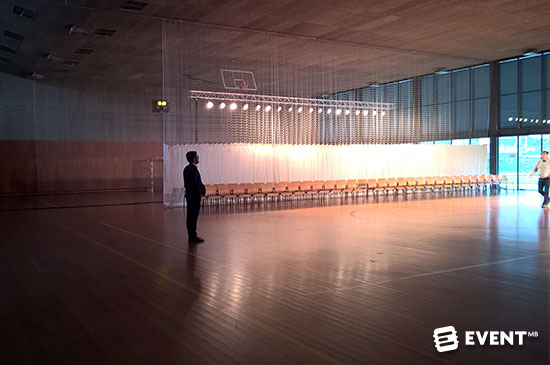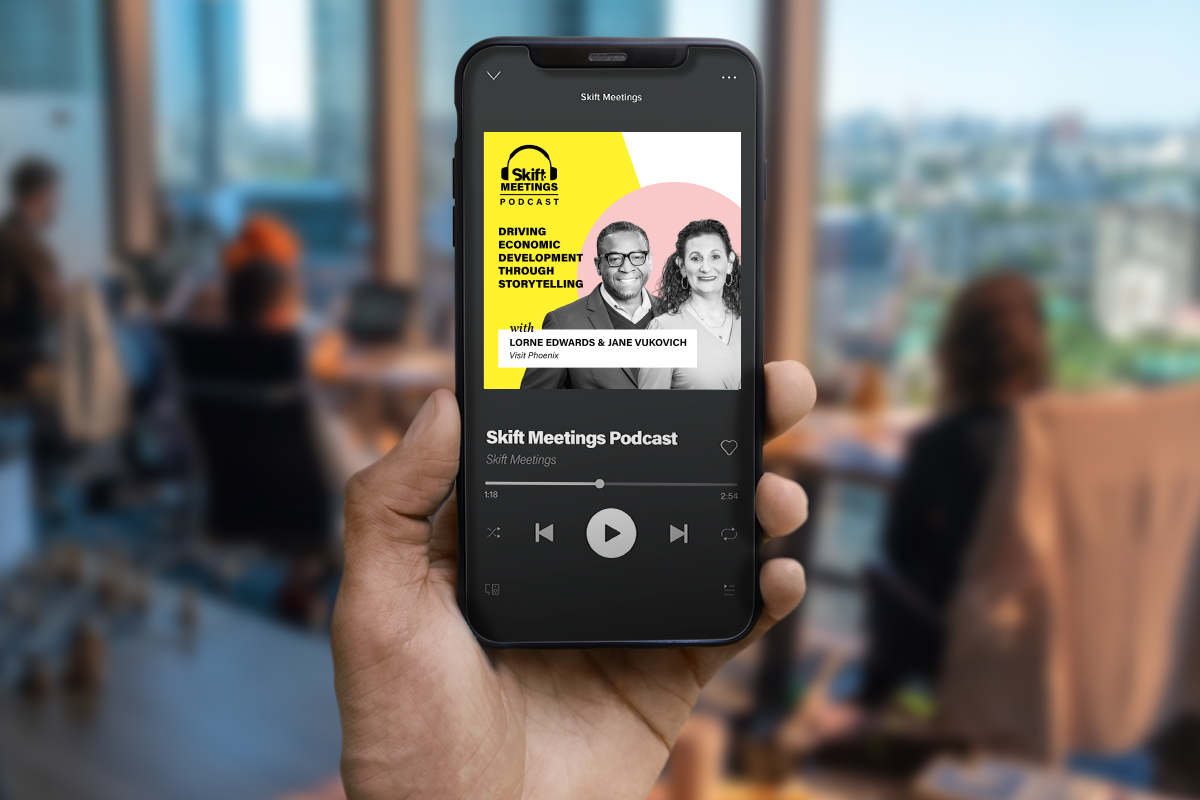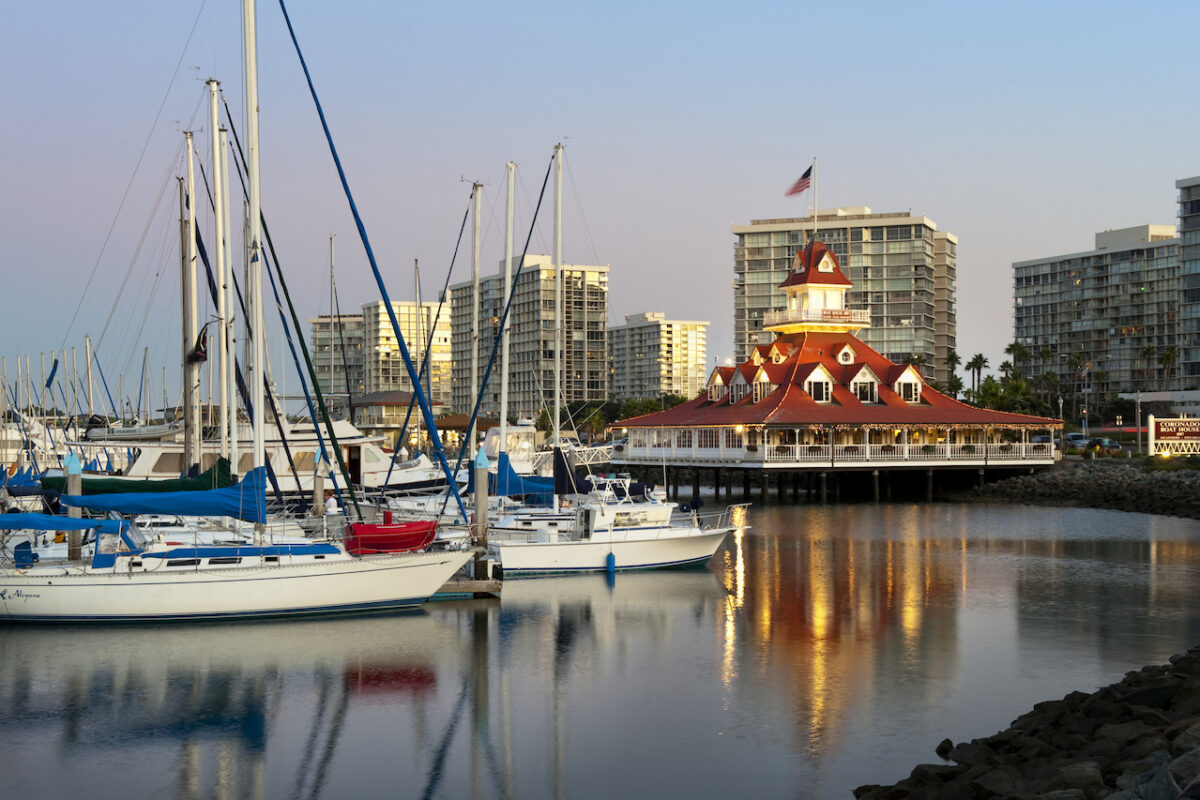Skift Take
Are you negotiating a venue contract for the first time or need a refresher on getting a better deal? Here’s what you need to know.
Negotiating is something you either love or hate. You enjoy the thrill of the hunt or you wish the “money talk” never had to happen. But while you may get used to negotiating payment, there are certain parts of the site contract negotiations that can be tricky for those who are used to someone else drawing them up. Here’s what you need to know when it’s time to draft your own.
##abovethefold##
Types of Venue Contract Negotiations
There are a few types of venue contracts and ways of negotiating them. For the purposes of this article, we’ve narrowed them down to two. There are:
- Standard “hotel” contracts. These types of venues (they needn’t be hotels but they are familiar with hosting events) do so many events they have a standard contract that they edit for each client. Your role in these contracts is simply to make sure everything is correct as stipulated. You will have some room for negotiation but some parts of the contract are non-negotiable in most cases.
- Event planner-drawn contracts. This contract will be drawn up by the planner. Contracts like this are often used in non-traditional event venues where they may have never hosted before. In this situation, things may be up for negotiation on both sides. Who will do this? Who handles that? This article addresses the points behind these negotiations.
Getting Started with Venue Contract Negotiations
Step 1. It all Starts with the Budget
Some event planners prefer to keep budget information to themselves because they believe sharing it will affect venue pricing. If you feel that way and they ask, let the venue know you are still finalizing your budget and that they should send/present their standard pricing. This gives you a point at which to begin negotiations. Know that “standard” pricing is probably going to be their high level but you can negotiate down from there.
If you’ve worked with this venue before and have a good relationship with them or if you don’t mind sharing your budget, then be upfront with how you’ve partitioned it all out and what you expect to spend on your venue.
However, there is rarely a reason to proceed with negotiations if the venue doesn’t fit in your budget. Yes, some things can be moved around and you undoubtedly have wiggle room, but if you are still light years away from similar numbers, stop wasting everyone’s time.
Better yet, don’t begin negotiations with a venue that you know is more than 20% out of your budget. Yes, they will give discounts, especially if you are booking an otherwise unpopular time, but you don’t want to start off in different budgetary worlds. They’re not going to carve off more than 20% of their price to fit within your budget. Asking them to do so is a professional discourtesy.
Instead, make sure you research their pricing online prior to contacting them to ensure their pricing tiers are in line with your budget. They needn’t fit exactly but they should be nearby.
Step 2. Speak the Same Language
When event planners think about attendees, they think headcount and often round up because they want enough food to go around. Venues, on the other hand, often are worried about meeting minimums. Make sure when you’re talking numbers of attendees that you are giving a good estimate, not one that’s overinflated.
Understand that the number you give could become your food and beverage minimum. So while you’re estimating high, the venue is holding you to that number as a minimum. See where that gets tricky? Ensure you’re speaking the same language and that you’re giving a good, reasonable number.
An overestimate on your part at this time in the negotiations could mean higher costs and a larger space than you need.
Step 3. Tomorrow’s Event Means No Negotiation
Negotiation is the thing people with lots of time do. No one wants to negotiate with someone who needs an event pulled off by next weekend. Yes, you may secure fantastic pricing if you book last-minute because they want to fill the space but that is not the time to negotiate things around your event. If you wait until the last-minute, you take your discount and like what they offer.
On the other hand, those who book far in advance have the most bargaining power. Keep this in mind if you’re deciding between multiple dates and have many requests.
Step 4. Online versus In-person
Many venues offer an online RFP (Request for Proposal) process. The more sophisticated of them walk the inquirer through the details of an event, prompting selections, which then create an online RFP. This is especially true of popular venues. No one wants to recreate everything from scratch each time.
That’s why those who take the time to go through the process online often receive larger discounts and greater flexibility. After all, you saved the venue time by using their system and ensuring your proposal looks like everyone else’s so they reward you for it. Whenever possible, select the online method if saving money is important to you.
Step 5. Ask
While the online form is a good place to start, that doesn’t mean you can’t ask or negotiate concessions. In the next section, we’ll examine some of the most popular. Nancy Nachman, a hotel site selection and negotiation expert, advised on LinkedIn to “Feel free to ask for your wish list of concessions. The revenue value your meeting represents to a hotel determines the amount of and type of concessions hotels will offer. Always ask for concessions to add more value to your hotel contracts.” Also make sure you’re working with someone who has the power and authority to negotiate.
Step 6. Compare
Negotiations should get underway only after you have narrowed your list down to a few vendors. Comparing a few venues at a time provides leverage for your negotiations. You can share with one venue that you negotiated a lower rate or a few concessions with another venue. However, these properties should be comparable or your desired venue may call your bluff.
Know that the venue may do the same to you. They may call and tell you that they have another interested event planner and that they need a decision from you by the end of the day.
The Components for Negotiating
Many of these discounts and concessions are based on total event spend. You have a lot more “bargaining” in a larger, costlier event than a small one. In addition to cash discounts, you could negotiate the following concessions:
- WiFi. According to the 750 survey respondents from our Art of Venue Negotiation report, this is still the top negotiation aspect out there. WiFi negotiations include in-room and/or conference areas. Hyatt and many other hotel chains now offer in-room and public spaces for free. Make sure you know the hotel policy before you try to negotiate it. A venue may agree to your request for free in-room WiFi to pacify you. You may be really excited about your negotiation only to find out that’s standard.
- Guest Comforts. If your venue is also a hotel, you could negotiate guest comforts like complimentary bottled water in every room. Again, you’ll want to find out what their standard offerings are before you ask for this.
- Upgrades to Suites at the Group Rate. Secure better rooms for VIPs or early-bird registrants with a little creative negotiation.
- Comp Standard Hotel Rooms. Some planners negotiate a set number of complimentary rooms as part of their room sales. For instance, one comp room for every 40 booked. These can make nice giveaways to keep on hand for referral contests or industry insiders.
- Free Bonus Rooms. Similar to concession #4, you can negotiate a smaller meeting/breakout room for every ballroom booked.
- AV Discounts. Ahhh, we can all dream.
- Day in, Day Out. Many venues have strict rules about exhibitor and conference set-up. Negotiating these times and days, like an earlier setup, can help alleviate some of the stress on your group.
- Check-In/Checkout Times. Your guests will appreciate a little flexibility with an early check-in and a late checkout. If the rooms aren’t needed and they’re ready, the hotel may accommodate your request.
- Cancellation Tier Schedule. Most newbies don’t think of this but cancellation refunds are often calculated based on time before event. The more time there is, the more of your money you will get back. It’s sometimes possible, and advantageous, to negotiate these terms.
- F&B Minimums. We know your group can eat and drink but did you know you can often negotiate the minimum numbers for these things?
Remember, your ability to negotiate ends with the signature on the contract. After that, it’s not a negotiation. It’s a favor.
The Legalese
If you’re drawing up the venue contract on your own, there are a few things you want to ensure enter into all of your venue contracts:
- Force Majeure Clause. All venues hold you to the date you sign your contract for. But there are times where that is simply not possible. These include things like natural disasters, civil unrest, terrorism, war, acts of God, and other uncontrollables. Having a force majeure clause in your contract guards against you being held liable as a “no-show” when these issues arise. The incredible flooding issues in Houston in August of 2017 will likely mean many event planners calling on this clause, possibly even through the end of the year as businesses recover from the devastation. While these things are impossible to predict, you should look at the timing and location of your event and update this clause accordingly. In addition to the force majeure clause, you may also want to consider event cancellation insurance. The American Association for Cancer Research canceled its conference in Toronto in 2003 when severe acute respiratory syndrome (SARS) hit the city. They didn’t want their 18,000 attendees exposed to it. The city sent them a bill for $6 million, not the kind of money one has sitting around in their wallet.
- Double-sided Indemnity Clause. Basically, this clause says that one party will not hold the other party liable for its negligence. For instance, the risk is placed on the party that is negligent. A double-sided indemnity clause means that it’s not just the venue that is protected from negligence but the planner as well.
- Agreement to Provide Insurance. Ideally, both the venue and group would be covered by insurance. Your agreement should also specify how much each group will carry. The idea here is to mitigate risk and to ensure (and insure, pun intended) that the onus is placed on the insurance companies.
- ADA Compliance. No event planner wants to be on the receiving end of an Americans with Disabilities Act (ADA) compliance lawsuit issue but if you select a venue that isn’t within code to ADA specifications, you could be. Make sure your contract states that the venue must follow all rules and regulations set forth by the ADA, including their policies and practices.
If you’re going to draw the contract up on your own, there are several sites out there that can help you with the basics. These include LegalZoom and RocketLawyer. However, consulting a small business attorney may also be helpful in order to create your initial event template. Finally, you can join an industry association that could help you with contracts. For instance, joining an association for corporate meeting planners could give you the paperwork and assistance that you need.
In Conclusion
If you’re new to event negotiations, you needn’t worry, There’s a lot of room for negotiating on budget and concessions. While it’s true the larger the spend, the more willing the event venue may be to meet your requests, it doesn’t mean an event planner of a smaller event shouldn’t make an inquiry. If you’re the type of event the venue wants to attract or you’re booking at an attractive time, one that’s normally slow, they may just meet your requests anyway.
Additional Reading on Negotiations and Budgeting
The Art of Venue Negotiation [Free Report]
The Ultimate Guide to Starting an Event Planning Business
How to Negotiate Killer Deals with Venues [Webinar]
16 Ways to Stretch Your Event Budget
25 Essential Tips to Become a Negotiation Ninja
5 Negotiation Mistakes Every Event Planner Should Avoid





